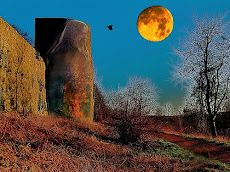http://writingmommies.blogspot.com/
Click hereInterview conducted by
Angela Atkinson.
Writing Mommies: Have you always wanted to be a journalist?
Mike Geffner: Actually, I started out wanting to be a fiction writer—a novelist or short story writer. I absolutely adored writers like Faulkner, Hemingway, Tolstoy, Conrad, Camus, and so many others.
In fact, the year right after college, I consumed, believe it or not, 300 classic short novels. It was so intense. I thought legendary novelists were just the greatest writers ever to inhabit the planet and I wanted their words inside me.
Journalism was just something I simply stumbled into, writing about what I knew, I guess—which, like most young boys, was sports. I figured I’d use journalism simply as a bridge to writing novels, but somehow it didn’t turn out that way. I fell in love with journalism.
WM: Did you have to deal with any rejections starting out?
MG: Oh, my, yes.
I’d published some stories in small magazines and newspapers while still in college, so I thought I’d have it easy landing a job. Well, I sent out 100 resumes to newspapers and magazines around the country and got rejected by 99 out of them.
Only one newspaper showed any interest in me at all: the Charlotte Observer in Charlotte, North Carolina. They considered me for a job as a junior sports editor. I did an audition for them, and, unfortunately, that didn’t work out either. So, I was 0 for 100. Not a great batting average. That just shows you how far you can go despite early rejections—from that awful beginning to where I am today.
WM: So what would you say was your first “real” writing gig?
MG: My first real job was stringing for the Associated Press. I first covered the New York Yankees every single home game. Not a bad gig for someone only 23 years old—covering the most famous sports team in the world and my favorite team as a kid. My job was writing game stories and features, as well as breaking news stories if I could dig them out.
It all felt natural to me—the reporting, the adrenaline rush of writing on deadline, the watching of baseball games and seeing the story within the story.
What’s funny is, I wasn’t even sure I wanted the job when it was offered to me, I remember calling my father and discussing it with him. He was a huge Yankee fan and said I was crazy if I rejected it. “Listen,” he said. “Take the job and if you hate it in a couple of months, just quit.”
That was in 1981—and I’ve never looked back since. I’ve been a working journalist all these years, never working a “real job.”
WM: You’ve worked for Penthouse, in addition to several other major magazines. What kind of stuff did you write for Penthouse?
MG: I did Q&A’s with athletes. No sex stories. In fact, my stories were completely non-sexual. But the pay was ridiculous—between $5000-7,500 for what amounted to no more than four days’ work. I spent a couple of hours interviewing the subject, which the magazine transcribed for me. I whittled down the transcription to its essence, made the thing flow smoothly, then topped it off with a 300-word lead-in. That was it. You don’t turn down assignments like that!
WM: We have to ask, what was it like interviewing President Nixon?
MG: I interviewed Nixon twice in the early 80’s, when I worked for the AP. It was a surreal experience. Like talking to Mount Rushmore. I mean, I never expected to interview him, because I wasn’t a political writer. We chatted about baseball. He was very charming and a huge baseball fan—and very knowledgeable about the game. One thing that sticks out in my memory is that once he learned my name, he used it in his answers, like “Well, Mike...” It’s, of course, a politician’s trick, a way to develop immediate intimacy—and it worked.
WM: What do you love about journalism?
MG: The immediacy of it, the digging out of unique stories. I love telling people something they didn’t already know.
But the journalism I grew up in, the one I grew to love, doesn’t really exist anymore. Accuracy and fairness doesn’t matter much anymore, stories with a heart aren’t given much space, and great writing is virtually non-existent. It’s all about gossip and controversy now, all about shock value and titillation.
WM: You work with new writers a lot, with Mike’s Writing Workshop, Writers Helping Writers, your Sunday workshops, etc. What inspires you to do that?
MG: I confess that I’m obsessed with helping new writers. I love giving back, making a difference in people’s lives.
The thing is, we all start out in the same place—unpublished and wondering if they’ll ever make it as a writer full time. My mission: I want to provide the advice and guidance that I didn’t have and make things easier if I can.
WM: In your experience, what does it take to get started in the field of journalism?
MG: 1) Find a way to land an internship at a publishing place. 2) Network with people in the industry. 3) Respond to as many job ads as possible, even ones that don’t appeal to you.
Get connected, body and soul, with the writing business and work hard at the craft each and every day.
WM: Rejection is part of the life of a writer. How would you recommend that writers deal with rejection in their careers? How have you dealt with it personally?
MG: The fact is, believe it or not, there are people who read Hemingway and Steven King and don’t think they’re any good. It’s all subjective. So don’t take any of it personally. If you take it too personally, you’re doomed. Me, I handle rejection by getting bummed out for a couple of days, then think about the next thing.
The secret of my success, I believe, is getting over rejection quickly and jumping right back in the race. I never let anybody tell me I can’t’ do this or that. If some editor doesn’t like what I do, I simply go on to the next editor. It’s about moving forward.
I think my perseverance and resilience have been the keys to my longevity in this field. The people who give up—those are the people who don’t make it.
Think of yourself like a door-to-door salesman. When a door-to-door salesman gets rejected, he’s happy, because he knows with each rejection he’s closer to a sale. He understands percentages.
The problem is, writers are wired differently than door-to-door salesmen. We’re sensitive souls and when we get rejected, we feel like it’s an attack on our souls. Ok, so get bummed out if you want, eat ice cream for two days straight if it makes you happy, but once that time is over stop thinking about that rejection and get back to writing again.
WM: Do you recommend that aspiring freelancers quit their “day jobs” in order to focus on writing?
MG: No!
Keep the guaranteed money coming in. But at the same time keep trying to publish and keep trying to make more and more money with your stories. Then, once you’re making decent living, strategize on making the gradual shift from part-time to full-time writing.
I won’t lie. Unless you land a staff writing gig, it’s very difficult. Freelancing can be a sucker’s life for most. You need to start making at least a $1-a-word to have any chance at all. Of course, if you’re a stay-at-home mom, if you’re not the primary breadwinner, freelancing can not only be a great creative outlet but a decent source of extra income.
WM: What’s the best way to make money as a freelance writer?
Do Q&A’s. They’re not as easy as they look, because you have to make the interview compelling and make it flow. You need to ask great questions and have the ability to find the core. Even though it’s a Q&A, it’s still a story and still requires storytelling. But they pay the most money for the least amount of work.
WM: How do you feel about content sites like Associated Content?
MG: Don’t get addicted to them. That’s my advice. They pay nothing and odds on they’ll lead to nowhere. And since it’s not going to lead anywhere, essentially all you’re doing is providing free content to a site so they can sell advertising. Worst, since there’s no editor to oversee your work, to intervene, you’ll likely develop bad habits and become a lazy writer.
Get used to working for places that require a certain standard for publishing your stories. And get used to being paid for your work. And get used to working with editors (I’ve learned so much from editors over the years).
WM: So do you advise writers to stay away from AC and similar sites?
MG: I would say that you should use this type of platform to simply establish your voice and practice. Then move forward, challenge yourself—or, trust me, your career will never go anywhere. If you’re not sure about the legitimacy of a site, there’s a great site called Writer Beware (http://www.sfwa.org/beware/) that can help. In fact, check out this post on my blog:
http://mikeswritingworkshop.blogspot.com/2009/03/redux-writer-bewares-cautions-about.html
WM: Is that what you’d about online publishing in general?
MG: Writing for websites is fine as long as it’s a pay site sand especially ones people know. Slate.com and Salon.com are two highly respected online-only sites. Also, look for online extensions of print publications and national TV networks. But, no matter what, you should try to get into print—and the bigger the circulation the better.
WM: You do so much to help other writers. What inspires you to do that?
MG: For one, there’s so much misinformation out there that I want to set things straight and get young or aspiring writers on the right path. In fact, that was the impetus behind my starting Mike’s Writing Workshop on Yahoo in March 2001. Instead of just complaining, I did something to change things.
Another reason is that one of my mentors once told me to “pass it on." And I have ever since.
WM: Why don’t you charge writers for the "insider" information you offer them on your websites?
MG: I do what I can. I charge for private sessions and my one-day Sunday workshops. But that’s it. Most writers, especially new ones, aren’t exactly rich, so I don’t want them forking over more money than they can afford. I just really enjoy teaching others and want to get the real information out there—not the crap you see on so many sites, like making money writing bumper stickers and for greeting cards. I mean, you didn’t become a writer to write bumper stickers and greeting cards, did you?
WM: What kinds of advice do you offer for writers in your groups?
MG: Well, I kept hearing the same questions over and over again, so one day I decided to answer the questions in one swoop and wrote The Ten Commandments to Writing Success (http://mikeswritingworkshop.blogspot.com/2009/01/mikes-10-commandments-to-writing.html). Originally I wrote it just for the group members so that they could refer to it, but it wasn’t long until a slew of writing resource sites asked me if they could reprint it.
I later came up with 10 more commandments, labeling it Part 2:
http://mikeswritingworkshop.blogspot.com/search?q=ten+commandments+to+writing+success
WM: The Ten Commandments to Writing Success has now been published all over the place. How did that happen?
MG: It’s been picked up by so many writing resource sites (including WM http://writingmommies.blogspot.com/2009/06/mikes-10-commandments-to-writing.html). And, it was eventually published by The Writer magazine, for which after a little re-writing I was paid a few hundred dollars. They then reprinted the article in their Writer’s Handbook and paid me again. And they’ve since reprinted it several times for their advertising material, paying me every step of the way.
It’s the gift that keeps on giving. Mind you, I never intended on this little piece being published. I never wanted to make a dime doing it—but when you do something good, someone will find you and pay you for it. That’s the lesson to be learned there. Put it out there and anything can happen—just like someone winning the lottery or some homely lady becoming world famous because of some TV talent show.
WM: If you had to choose, who would you say was a writing mentor for you?
MG: The person who helped me most wasn’t a writer at all, believe it or not, but a retired salesman for the Wall Street Journal. His name was Al and he gave seminars in New York City (as well as other places) about finding work. Not writing work, mind you. Just work in general. Well, one day years ago, when he was giving a seminar in a library, I decided to take a listen, since at the time I was struggling to find work as a writer. Part of me thought, “What can he do for ME? It’s not about writing jobs.” But the other part of me kept an open mind and listened. Luckily. Because Al was a fascinating, tough, and wise man.
I ended up following him all over Manhattan, going to every one of his seminars for months.
He taught me that looking for work was nothing more than selling—selling yourself. In other words, to be successful at finding work, you need to be a great salesman of the commodity of YOU.
In the end, I landed a major writing job, thanks to Al’s guidance, but when I asked what I could do for him in return, he said, “I don’t want anything.” And he paused before adding: “Just pass it on.”
That was such a powerful moment for me, so memorable. That was something that made a difference in my life, a critical juncture. I don’t think I’ve been the same person since. I’ve definitely made sure to pass it on, to pay it forward.
So, tag, you’re it now! It’s your responsibility to pass it on.
WM: Thank you, what an honor! So that must have helped inspire you to work with new writers?
MG: Definitely. And the fact that there’s so much misinformation out there, so many freelance writing “gurus” who don’t have any real credentials or know what they’re doing, I wanted in my own little way to set the record straight. A lot of these self-proclaimed writing gurus are like those middle-of-the-night real estate guys you see on television—they don’t make their money buying and selling real estate as much as they do selling tapes and books.
WM: Have you ever considered writing a book? We think it’d be a best seller.
MG: I’ve been asked to write a book a zillion times, but for some reason I haven’t done one yet. When I am ready, I guess, I’ll do it—if that day comes. The fact is, I go wherever my heart takes me. As long as I have a roof over my head and food on the table, I do what’s right for me. I’m sure I’ll probably do that book at some point, just not sure when.
WM: What would you say is the best writing advice you’ve ever been given?
MG: I’ve been given a lot of great advice over the years, but the one piece I remember best came years ago from Joe Klein, the wonderful political journalist who wrote “Primary Colors” and now writes for Time magazine. He said to me once, “Never throw away a single line.” In other words, really try to make every single line count. To this day, I think about Joe’s advice every time I write a story. I’m still trying to make my stories better. I keep searching for the right words. I keep working, day in and day out, at the craft, trying to make it great.
Angela Atkinson is freelance writer and editor working from home. She is happily married and has three beautiful children. Find out more about Angela's freelance services, including links to other work on her website, http://angelaatkinson.com/
Click hereVisit her personal blog at In Pursuit of Fulfillment.
http://angieatkinson.blogspot.com/
Click here








































